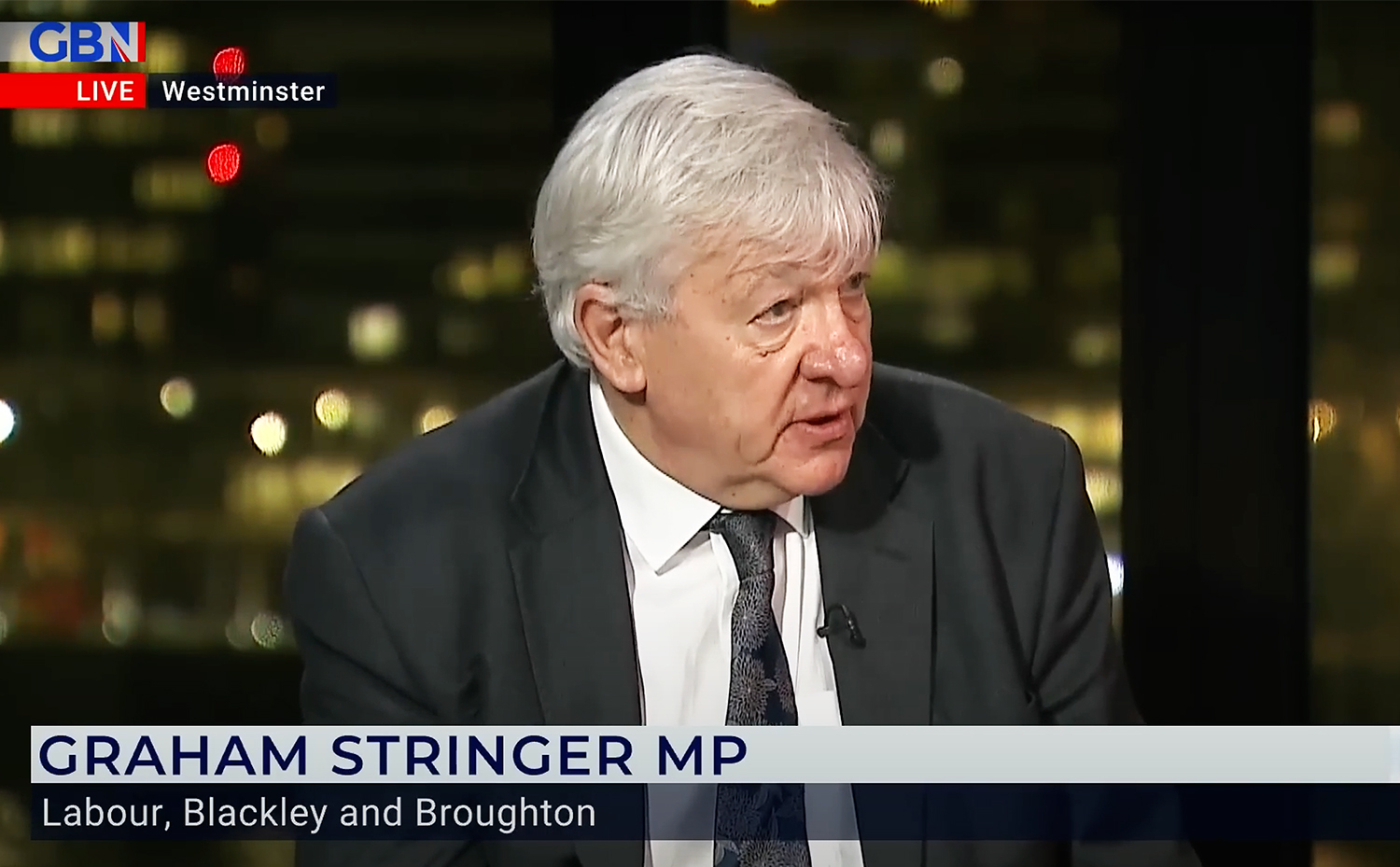The Labour Party has been criticised by campaigners after a board member of the UK’s leading climate science denial group was reselected as a candidate at the upcoming general election.
Graham Stringer, a Labour MP since 1997, has been reselected as the party’s candidate for Blackley and Broughton in Greater Manchester. Since 2015, Stringer has been a director of the Global Warming Policy Foundation, a group founded to contradict established climate science and advocate against policies to limit greenhouse gas emissions.
The GWPF has in the past expressed the view that carbon dioxide has been mis-characterised as pollution, when in fact it is a “benefit to the planet”. GWPF director Benny Peiser has said “it’s extraordinary that anyone should think there is a climate crisis”.
Staff members at the GWPF and its sister group Net Zero Watch have been given a regular platform on the right-wing broadcaster GB News in recent months, during which they have claimed that the climate emergency is simply “scaremongering”, that “net zero is doing enormous damage to the economy”, and that “the lights will go out” if we divest from fossil fuels.
“It’s a scandal that Labour is allowing Graham Stringer to stand again,” said Carys Boughton of the Fossil Free Parliament campaign group. “To keep a forthright, prominent climate denier in the fold is to suggest that the party doesn’t understand the urgency of the crisis we are facing. We need Labour to actively stand against the forces that are compromising good climate policy, be they external or within their own ranks.”
The GWPF is based in 55 Tufton Street, Westminster, which has housed a number of libertarian groups that are opposed to clean energy policies and climate science.
Stringer has vocally questioned climate science and policies to achieve net zero emissions. At a Battle of Ideas event in 2023, he said that the policies adopted by the UK to address emissions “make China stronger, make us vulnerable to supply chains that we have no control over, and cost large amounts of money.”
In 2014, Stringer was one of only two MPs on Parliament’s Energy and Climate Change Committee to vote against accepting the conclusion of the UN’s Intergovernmental Panel on Climate Change (IPCC) that humans are the dominant cause of global warming.
Stringer and Conservative MP Peter Lilley said that they did “not dispute the science of the greenhouse effect”, but that “there remain great uncertainties about how much warming a given increase in greenhouse gases will cause, how much damage any temperature increase will cause and the best balance between adaptation to versus prevention of global warming.”
Stringer also planned to join Reform UK’s Nigel Farage and Richard Tice for their launch of a net zero referendum campaign in 2022 (though he later pulled out of the event). Reform wants to scrap the UK’s 2050 net zero target, while both Farage and Tice are critics of climate science. Tice has claimed that “CO2 isn’t poison. It’s plant food”.
Speaking on GB News about his initial decision to campaign alongside Farage and Tice, Stringer said that “I’ve argued for a long time against the extra costs being placed on people to achieve net zero.”
Energy price rises triggered by Russia’s invasion of Ukraine in 2022 were exacerbated in the UK – the worst hit country in western Europe – due to its over-reliance on gas. The Office for Budget Responsibility, the government’s independent spending watchdog, has said that “the costs of failing to get climate change under control would be much larger than those of bringing emissions down to net zero”.
Conservative peer Lord David Frost is a director of the GWPF alongside Stringer. Tory and Reform donor Terence Mordaunt is also a director of the GWPF, while Conservative politician Andrea Jenkyns is a director of Net Zero Watch.
“Labour can claim a serious commitment to environmental and climate policy. Or it can select as an MP a candidate who is on the board of a Tufton Street climate science denial think tank. But it can’t do both,” said Jolyon Maugham, director of the Good Law Project.
Labour and Climate Change
The Labour Party has this week been finalising its list of candidates for the general election, with its full slate set to be submitted on Friday (7 June) ahead of the 4 July vote.
The party has been campaigning prominently on the issue of clean power, pledging to create a state-owned renewable energy investment vehicle, GB Energy, that it says will help to “speed up and scale the deployment of new technologies”.
Labour has also said that it plans to remove fossil fuels from UK electricity production by 2030, five years earlier than current government plans, and to ban new North Sea oil and gas licences.
Reports suggest that the party views climate change as a key dividing line of the election campaign, with Rishi Sunak’s Conservative government having overseen the watering down of several net zero policies over the last year. Sunak launched the election campaign by claiming that he had “prioritised energy security and your family finances over environmental dogma”.
However, Labour has been criticised for dropping its plan to invest £28 billion a year in green infrastructure to reach net zero. On announcing that the policy would be scaled down, Labour leader Keir Starmer said that “fiscal rules come first”, adding that higher interest rates meant that financing the plan would be more expensive. The pledged investment has now been reduced to £15 billion a year.
Labour did not respond to DeSmog’s request for comment, but a spokesperson previously told The Guardian: “The choice at this election is clear: a Conservative government that pollutes our rivers with record levels of toxic sewage, is led by and funded by climate deniers and fails to meet our climate and nature targets; or a Labour government that will restore nature, deliver the largest investment in clean energy in our history so we can cut bills for families, make Britain energy independent and tackle the climate crisis to protect our home for our children and grandchildren.”
Subscribe to our newsletter
Stay up to date with DeSmog news and alerts






